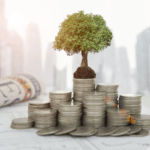The impact of the COVID-19 Coronavirus on our future depends on the relationship between human behaviour and the behaviour of the COVID-19 virus. This is according to Dr Morne Mostert, Head of the Institute of Futures Research at Stellenbosch University. The behaviour of the virus is being tracked and better understood. How it moves. What supports its spread. What doesn’t. In some climates it’s lethal. Generally older people. Less so in the young.
As Dr Mostert points out, the virus has been able to take advantage of a perfect storm. Never before has humanity been so globally mobile. Never before have so many people lived cheek by jowl in urban areas. And never before has humanity’s collective immune system been in such bad shape. Obesity, chronic diseases, heart disease, cancers, stress and an abundance of processed foods – they are all as virulent as the virus itself, and what happy hunting grounds they provide.
But we can take heart from the fact that each day the scientists understand the behaviour of the virus a little better.
At some point, that understanding will conquer the virus. There are still unknowns. How will it mutate? Will it re-visit after one sitting? If human history is anything to go by, the scientists will be successful in developing a vaccine. How long it will take remains the big unknown. In the interim, the virus could wreak untold havoc.

Human behaviour, on the other hand, is slightly more complex. Even though we know what behaviour will minimise the transmission of the virus and what will help us fight it most effectively, as humans we may not necessarily act accordingly.
Viral images of beachgoers thronging on Bondi Beach in Australia in response to a request for social distancing highlight the challenge of influencing human behaviour.
This is why Dr Mostert suggests that compliance with the policy and guidelines that governments are laying down worldwide will be instrumental in countering the virus. Those countries in which there are high levels of citizen compliance such as China, South Korea and even North Korea will likely win the battle to contain the virus much more easily than those with less compliance.
So, no matter how much logic there is to the practice of social distancing, Australia has not been alone in noncompliance. Countries across the world, from Italy through the UK to the US, have struggled to get compliance – to the extent that the Governor of New York, Andrew Cuomo, said, “I don’t know what they’re not understanding” in response to New Yorkers ignoring social distancing guidelines. And therein lies the challenge. Humans are not rational.
We may be able to predict the behaviour of the virus but not that of people. But the impact of COVID-19 on our collective futures depends on understanding and influencing the behaviour of both the virus and people.
And what does this have to do with your client’s financial plan?
COVID-19 has struck at the heart of the global economy and knocked the stuffing out of investment markets. In a sense, the health pandemic has catalysed an economic pandemic. As with COVID-19’s impact on our collective futures, the financial futures of your clients will be determined by two interrelated factors –first, the behaviour of investment markets in response to the economic pandemic; and second, yes, you’ve guessed it, the behaviour of your clients.
“Have a financial plan and stick to it”
Just as the scientists develop their understanding of the virus, so too do we have economists and financial analysts getting to grips with the transmission and spread of the economic pandemic. As with the virus, we’ve been here before. Whether it be 1929, 2000 or 2008, investment markets have experienced other economic and financial pandemics.
Each shock to the financial system offers us lessons to learn for the next one. The global economic and financial system will resuscitate itself. It may have to mutate into new ways of working. Perhaps we will learn that aspects of the pre-2020 economic system are not sustainable. The climate has been warning us about this. COVID-19 may just be the bitter pill we needed to swallow.
But the work on the behaviour of the economic and financial system is like the work on the behaviour of the virus. It is only half the puzzle that will ultimately make up the picture of your client’s financial future.
The other half is your client’s behaviour. Now we know that there are probably two fundamental guidelines clients should follow when responding to the economic and financial pandemic.

First, have a financial plan and stick to it. Many clients may now need to revise their financial plans, but the fundamentals are unlikely to change. Perhaps time-frames need to be reviewed. The pandemic will hit personal earnings and the capital value of investments hard. Clients may now need to work longer than expected, or even start working again. Either that, or they will need to re-envision the life they had planned to lead pre-COVID-19.
Second, don’t get seduced by the rise or spooked by the fall in markets. Many of you may be scratching your heads like Andrew Cuomo and asking, “What are clients not understanding about this? We keep telling them not to give in to greed and fear.” In the same way that no matter how much sense social distancing makes, the human emotion machine can’t help itself. We are wired to avoid pain and seek pleasure.
Getting out of these investment markets now will help ease the pain. After all, many will argue that life as we know it has changed forever. This time it’s different. Or is it? Investment markets have been here before. Last time it was 2008. It may be worse this time. It may not be. We don’t know. But we do understand the behaviour of investment markets. They overreact on both the downside and the upside. They experience contagion just like the virus.
“Don’t get seduced by the rise or spooked by the fall”
To paraphrase Warren Buffett, “In the short term, the market is a voting machine, and very often people vote very unintelligently; but in the long term the market is a weighing machine, and it is the weight of companies, economies and countries that ultimately drive the returns investors need.” In a way it’s easy to predict what will happen in the investment markets. They will recover, over time. But this may not ease the symptoms of financial distress that your clients are experiencing at the moment.

The only treatment that clients can take any comfort from when the economic pandemic is so acute is to focus on their financial plan and adjust that to their new personal circumstances.
Perhaps COVID-19 offers the vaccine all clients need to secure their future financial health, the insight that our financial futures are not simply dependent on how investment markets perform, but also on how effectively we manage the relationship between our money and our lives.
References
What will businesses look like Post COVID-19? CapeTalk Podcast: Today with Kieno Kammies, Guest: Dr Morne Mostert, Director at Institute for Futures Research at Stellenbosch University, 23 March 2020








